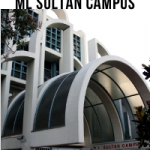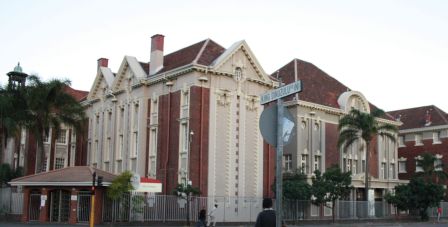Menu
- Spring Graduation Ceremonies 2025
- SRC Online Elections 2025
- Application & Registration Information
- Academic Calendar 2025
- Fees Booklet
- Academic Calendar 2026
- Study Opportunities
- ENVISION2030 Institutional Awards
- Career Leaflets
- Handbooks
- Court Order – Forums Threat
- ENVISION2030
- Why Choose DUT
- “Missing Middle” application form
- NSFAS New Students
- NSFAS
- Autumn Graduation Ceremonies 2025
- Honorary Doctorates
- DUTLink Newsletter
- Lecture Timetable
- Association of Commonwealth Universities
DUTLINK
Our Facebook Page
 With the heralding of its centenary year in 2007 the Durban University of Technology (DUT) takes its place among the distinguished seats of learning in our country and on the African continent. Spanning a century, the institution’s graduates have left an indelible mark on the history of this country.
With the heralding of its centenary year in 2007 the Durban University of Technology (DUT) takes its place among the distinguished seats of learning in our country and on the African continent. Spanning a century, the institution’s graduates have left an indelible mark on the history of this country.
The past hundred years have seen a great deal of change. Vice-Chancellors, professors and students have come and gone; tens of thousands of lives have been enriched by the education received at the Durban University of Technology, and its predecessors. Their dedicated staff members, some of whom have been at the institution all of their working lives, have all contributed to the development of a vibrant institution.
The Higher Education landscape changed in South Africa in 2002 when the ML Sultan and Technikon Natal merged to form the Durban Institute of Technology on 1 April 2002. In order to further streamline and harmonize the academic activities of all tertiary institution in South Africa, the Department of Education recommended additional restructuring to ensure that South Africa’s tertiary education institutions were able to position themselves against global benchmarks to attract the finest students and staff, to provide a complete set of practical and academic campuses, to offer an optimal mix of academic and vocational qualifications; and to provide for the development of skills required by the country. In line with this development, the Durban Institute of Technology formally changed its name to the Durban University of Technology (DUT) in March 2006.
It operates on five different campuses in Durban, and two in Pietermaritzburg, offering tuition through its six faculties of Accounting and Informatics; Applied Sciences; Arts and Design; Engineering and the Built Environment; Health Sciences; and Management Sciences.
In 2012 DUT had 25 000 local and international, culturally diverse students enrolled for undergraduate and post graduate studies.
CITY CAMPUS

